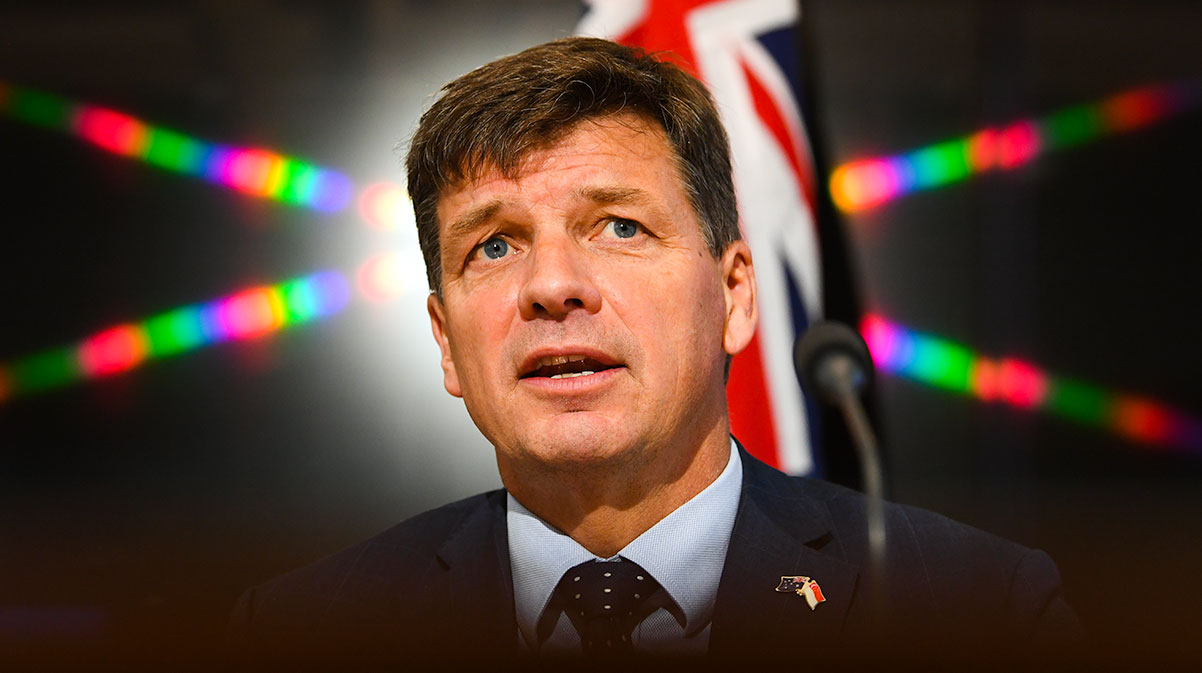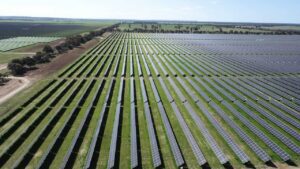The Morrison government’s decision to allow the developers of emissions reduction projects from its flagship climate program is likely to deliver a windfall of $1.3 billion or more to the country’s carbon traders.
One of the biggest beneficiaries is expected to be the Australian carbon trader GreenCollar, whose shareholders include include international investment heavyweights KKR and Ontario Teachers and which could reap a $420 million windfall from the change.
As RenewEconomy reported last Friday, federal energy and emissions reduction minister Angus Taylor effectively walked away from the Coalition government’s flagship climate program, its Emissions Reduction Fund, by allowing contracted developers to sell their abatement on the open market.
That caused a dramatic slump in the price of carbon units, known as ACCUs, which could put some large long term investments – including in carbon capture and storage – in doubt.
But at the same time, they could deliver windfall profits to those projects hitherto trapped within the much lower price band of the ERF mechanism.
The open market primarily consists of major corporate buyers looking for Australian carbon offsets that can be used to help meet ‘carbon neutral’ commitments or otherwise help major emitters meet their own emissions reduction commitments.
Taylor argued that the change was necessary to avoid an even messier process, and fears that the Clean Energy Regulator may need to commence legal proceedings if offset projects exercised a pre-existing exit clause.
But the surprise announcement sent a shock through Australia’s fledgling carbon market, sending carbon prices falling. ACCU prices dipped sharply immediately after the regulator’s announcement, losing about a quarter of their value in a single day, falling from $47 per tonne to $35 per tonne.
According to the contract database published by the Clean Energy Regulator, the federal government has contracts to purchase around 208 million tonnes of Australian Carbon Credit Units (ACCUs) under the fixed-price contracts affected by the change.
To date, around 76 million ACCUs have been delivered to the regulator, leaving 131 million ACCUs that can now be freed up for sale into the spot market.
In exercising the non-delivery clause, abatement projects will forego the payments they were entitled to under the contracts (averaging about $12.50 per tonne), and will be liable to pay an equal amount to the government as “buyer’s market damages”, meaning it will effectively cost projects $25 per ACCU to exit the contract.
But if ACCU prices remain at their current levels of $35 per tonne, the potential windfall is $10 per ACCU, amounting to a total windfall gain across 131 million ACCUs of about $1.32 billion.
This windfall effectively comes at the federal government’s expense as the counterparty to the fixed-price contracts, as well as other ACCU producing projects, both current and future. As one observer noted, it is an effective transfer of wealth, funded by the taxpayer.
However, the changes have negatively impacted the 70 Emissions Reduction Fund projects that entered into “optional delivery” contracts with the Clean Energy Regulator.
These the “optional delivery” contracts, cover around 21 million ACCUs. The immediate drop in ACCU prices from $47 to $35 each has effectively wiped out more than $250 million in revenue that these “optional delivery” projects might have expected to receive.
In the government’s case, when ACCUs traded at nearly $50 each, its contractual rights to the 131 million tonnes of abatement were had a market value of about $6.2 billion.
Through its Emissions Reduction Fund contracts the federal government was set to pay only about $1.6 billion for the outstanding abatement, as the contracts had been signed when ACCU prices were closer to $12 per tonne.
This was evidently a good deal for Australian taxpayers, but following the change in stance, the government may not actually acquire any of the remaining abatement – and will effectively hand back the value of the contracts to carbon traders.
Angus Taylor has indicated that the money now freed up – as well as the $1.6 billion the government could receive through the contractual penalties – will be reinvested in emissions reduction projects.
But it is not yet known what this may involve or whether the Morrison government may be tempted to tap into these funds to provide further backing for its preferred technologies, like gas projects or carbon capture and storage.
The largest single beneficiary of the change is TerraCarbon, a subsidiary of environmental markets investors GreenCollar, which has over 42 million ACCUs under contract and yet to be delivered to the government.
This could amount to a $420 million windfall for GreenCollar at current ACCU prices. GreenCollar’s shareholders include KKR and Ontario Teachers.
Other major beneficiaries of the changes could include carbon farming project developers AgriProve, with around 18.1 million carbon units potentially freed up and now worth an extra $181 million.
Unsurprisingly, AgriProve welcomed the changes, saying they reflected a “maturing” of the Australian carbon market.
“These changes support the role of Government in underwriting project development and reinforcing innovative climate solutions,” AgriProve managing director Matthew Warnken said.
“We are also excited that the additional details around these transitional arrangements point to the ongoing evolution of the Australian carbon market towards full optional delivery for all carbon abatement contracts.”
Carbon market consultancy Corporate Carbon Solutions could also bank a $160 million windfall, with almost 16 million ACCUs available.
Whether such windfalls flow through to landholders and the hosts of carbon abatement projects will depend on their own arrangements with aggregators like GreenCollar, Agriprove and Corporate Carbon Solutions.
Writing in The Australian, GreenCollar chief executive James Schultz backed the changes, saying that the “vast majority” of any windfall would flow through to landholders hosting the carbon abatement projects.
“What this change really means is that these families will see the credits from their projects able to be sold at higher prices and will get the significant majority of the benefit from the increased price,” Schultz wrote.
In a related issue, the windfall for GreenCollar could raise fresh scrutiny over the climate policy decisions of the Morrison government, and who is guiding such decisions.
In 2020, GreenCollar received investment from the global investment fund KKR. The deal led to former Origin Energy CEO Grant King being appointed as chair of the GreenCollar board.
King is also chair of the Climate Change Authority – the independent body created to provide advice to the government on climate policy – and was previously commissioned by the Morrison government to undertake a review of the Emissions Reduction Fund.
There are no suggestions of impropriety on the part of King, or the GreenCollar group, and the Climate Change Authority confirmed to RenewEconomy that it had not input in the recently announced changes to the Emissions Reduction Fund.
“The Climate Change Authority did not provide advice or input to the Government on the changes to the Emissions Reduction Fund announced by Minister Taylor on 4 March,” Climate Change Authority Brad Archer said.
“The Climate Change Authority has policies and procedures to manage any actual or perceived conflicts of interest including a register of interests which is regularly updated.”










